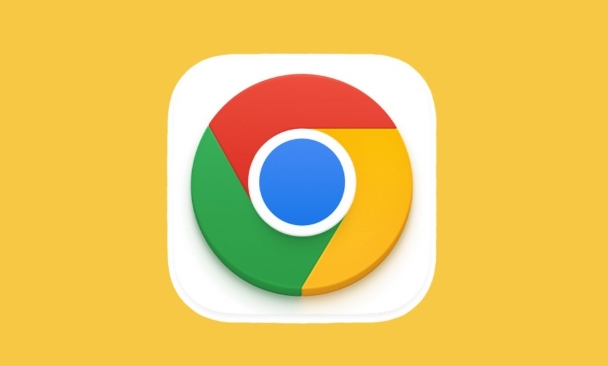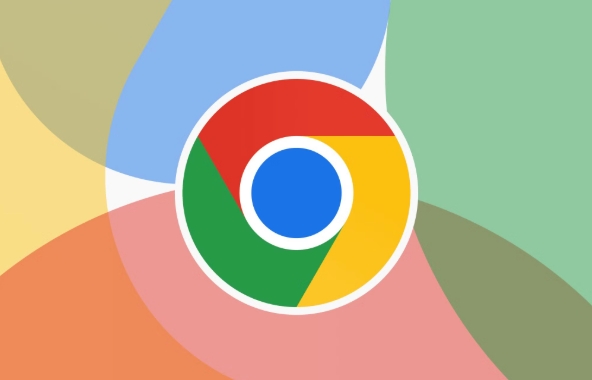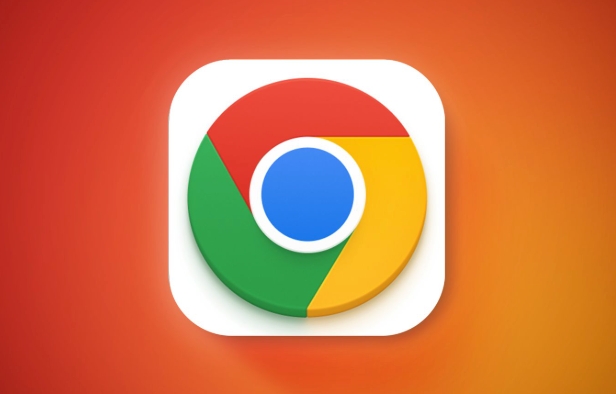 Computer Tutorials
Computer Tutorials
 Browser
Browser
 How to manage and clear the DNS host cache in chrome://net-internals
How to manage and clear the DNS host cache in chrome://net-internals
How to manage and clear the DNS host cache in chrome://net-internals
Jul 13, 2025 am 12:41 AMChrome provides DNS cache viewing and clearing functions through the chrome://net-internals page. The specific operations are as follows: 1. Enter chrome://net-internals in the address bar to enter the network status interface; 2. Click the DNS tab to view the current cache record, including the domain name, IP address and expiration time; 3. Click the Clear host cache button at the bottom of the page to clear the browser DNS cache, which is suitable for website migration, hosts file testing, or debugging CDN configuration, etc., but this operation does not affect the system level DNS cache. If necessary, you must clear the system cache through system commands such as ipconfig /flushdns for Windows or sudo killall -HUP mDNSResponder for macOS.

Chrome itself does not directly provide a "DNS cache" user interface, but through chrome://net-internals page, you can view and clear internal network status, including DNS cache. This function is very useful for debugging website access issues, testing whether DNS modifications are effective, etc.

How to enter the chrome://net-internals page
To access this page, just enter:
chrome://net-internals
Then press Enter. You will see an interface with multiple tabs, where the DNS cache is related to the DNS tab.

How to view current DNS cache content
Click the DNS tab in the top navigation bar and you will see the DNS records in the current browser cache. These records usually include:
- Domain Name (Host)
- IP address (Address)
- Expires
This helps to tell if a domain name is still using old resolution, such as when you just changed your DNS settings.

How to clear DNS cache
If you want to manually clear the DNS cache, follow these steps:
- Click the DNS tab in the top navigation bar.
- Find the Clear host cache button at the bottom of the page and click.
This will immediately clear the current browser's DNS cache and allow the next request to re-dNS resolution.
Note: This is just to clear Chrome's own DNS cache and will not affect the operating system level DNS cache.
Practical application scenarios for clearing DNS cache
Some common situations where DNS caches need to be cleared include:
- After the website migrates the server, the old IP address is still cached.
- After testing the local hosts file modification, I want to confirm whether the browser uses the new parsing.
- When debugging a CDN or load balancing configuration, you want to quickly switch the IP address.
In this case, clearing the DNS cache in chrome://net-internals can avoid access exceptions caused by cache.
Additional Note: Does the system-level DNS cache also need to be processed?
Yes, Chrome's DNS caching is just part of the entire process. If you find that even if the browser cache is cleared, some websites still cannot be accessed properly, you may also need to clear the system-level DNS cache:
Windows : Open a command prompt and run:
ipconfig /flushdns
macOS/Linux : Usually you need to restart the network service or use specific commands, such as running on macOS:
sudo killall -HUP mDNSResponder
Basically that's it. Although Chrome's DNS cache management is not particularly intuitive, it is quite convenient to use
chrome://net-internalsto view and clean it.The above is the detailed content of How to manage and clear the DNS host cache in chrome://net-internals. For more information, please follow other related articles on the PHP Chinese website!

Hot AI Tools

Undress AI Tool
Undress images for free

Undresser.AI Undress
AI-powered app for creating realistic nude photos

AI Clothes Remover
Online AI tool for removing clothes from photos.

Clothoff.io
AI clothes remover

Video Face Swap
Swap faces in any video effortlessly with our completely free AI face swap tool!

Hot Article

Hot Tools

Notepad++7.3.1
Easy-to-use and free code editor

SublimeText3 Chinese version
Chinese version, very easy to use

Zend Studio 13.0.1
Powerful PHP integrated development environment

Dreamweaver CS6
Visual web development tools

SublimeText3 Mac version
God-level code editing software (SublimeText3)
 How to fix screen tearing when scrolling in Chrome
Jul 25, 2025 am 12:55 AM
How to fix screen tearing when scrolling in Chrome
Jul 25, 2025 am 12:55 AM
The screen tear occurs when the Chrome browser scrolls, which is usually caused by the out-of-synchronization of rendering and refresh. The solutions are as follows: 1. Ensure that hardware acceleration is enabled, you can manually check the settings and restart the browser; 2. Forcefully enable Compositor and related options to optimize rendering; 3. Check the display refresh rate, use single-screen testing, and enable VSync or adaptive synchronization technology on supported devices; 4. Update the graphics card driver or replace the display interface such as using the DP interface. It is recommended to start the troubleshooting with simple steps and gradually adjust to find the best configuration.
 How to fix Chrome when it's not printing correctly
Jul 26, 2025 am 02:46 AM
How to fix Chrome when it's not printing correctly
Jul 26, 2025 am 02:46 AM
Chrome printing exceptions can be solved in the following ways: 1. Check the printer selection, paper size, orientation, zooming and background graphics settings in the print preview; 2. Try stealth mode to eliminate extended interference and clear cache; 3. Update or reinstall the printer driver, replace the general driver or use the "Print as PDF" method; 4. Finally, you can reset the Chrome settings to restore the default. Most problems can be solved through the first few steps. If they still fail, you can export PDF to print.
 How to fix Chrome profile sync getting stuck in setup
Jul 25, 2025 am 01:10 AM
How to fix Chrome profile sync getting stuck in setup
Jul 25, 2025 am 01:10 AM
The problem of Chrome sync stuck can be solved through the following steps: 1. Check the network connection and Google account status to ensure normal access; 2. Log out and log in to the Chrome account again; 3. Clear the synchronized data and restart the browser; 4. Reset Chrome settings; 5. Try the traceless mode or new user profile. Sequentially checking can effectively restore the synchronization function.
 How to fix Chrome opening new windows instead of tabs
Jul 26, 2025 am 01:29 AM
How to fix Chrome opening new windows instead of tabs
Jul 26, 2025 am 01:29 AM
1. Check whether the shortcut attribute has additional parameters and delete it; 2. Clear cache and switch startup settings, or create new user information; 3. Extend the impact and disable the problem plug-in through traceless mode. Chrome pops up new windows instead of tabs usually due to exceptions in shortcut parameters, cache configuration conflicts, or third-party extension interference. Check and adjust the corresponding settings in turn to resolve.
 Google Chrome password manager is not saving passwords
Aug 02, 2025 pm 01:47 PM
Google Chrome password manager is not saving passwords
Aug 02, 2025 pm 01:47 PM
EnsureChrome’s“Offertosavepasswords”isenabledinSettings>Autofillandpasswords>PasswordManager.2.SignintoyourGoogleaccountandturnonSyncwithPasswordsincludedunderSyncandGoogleservices.3.Disableconflictingextensionslikethird-partypasswordmanagersor
 How to use Chrome's built-in ad blocker on abusive sites
Jul 27, 2025 am 12:31 AM
How to use Chrome's built-in ad blocker on abusive sites
Jul 27, 2025 am 12:31 AM
Google Chrome doesn't have a built-in traditional ad blocker, but it provides features to block intrusive and abusive ads. ① Pop-up windows and redirects can be blocked through content settings and BetterAdsStandards standards; ② Enable safe browsing to warn or block access to dangerous websites; ③ Clear site data and block third-party cookies to reduce tracking; ④ Chrome's native tools cannot completely block banner ads and video ads. If you need stronger functions, you need to install an extension.
 Why is my Chrome profile corrupted and how to fix it
Jul 26, 2025 am 01:31 AM
Why is my Chrome profile corrupted and how to fix it
Jul 26, 2025 am 01:31 AM
Chrome profile corruption can be resolved by creating a new profile, repairing local profile folders, clearing caches, and disabling extensions. Chrome configuration files contain bookmarks, passwords, extensions and other data. Corruption is usually caused by crashes, update interrupts or extension conflicts, which are manifested as failure to load bookmarks, extension exceptions, or error prompts. Solutions include: 1. Create a new configuration file and migrate data; 2. Rename the local configuration folder to trigger reconstruction; 3. Clear cache and disable extensions one by one to troubleshoot problems. To prevent it from happening again, it is recommended to back up your bookmarks regularly and enable synchronization, while avoiding forcing the browser to close when starting or updating. If the problem persists, there may be system or hardware problems, but it is rare.
 How to find duplicate bookmarks in Chrome
Jul 27, 2025 am 12:59 AM
How to find duplicate bookmarks in Chrome
Jul 27, 2025 am 12:59 AM
Chrome itself does not support automatic marking of duplicate bookmarks, but can be found and cleaned by the following methods: 1. Use the built-in bookmark manager to manually sort and view duplicate items, which is suitable for situations where there are fewer bookmarks; 2. Install extensions such as BookmarkDuplicateDetector, CleanMasterforBookmarks, etc. to automatically scan and delete duplicate bookmarks; 3. After exporting the bookmark as an HTML file, use a text editor or programming language to deduplicate it, which is suitable for users with a large number of bookmarks or technical foundations. It is recommended to back up the bookmark before operation to prevent mistaken deletion.





